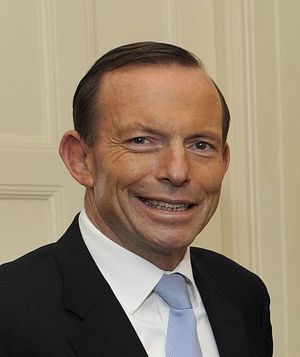Wikileaks has released a leaked copy of a court order handed down by the Victorian Supreme Court that shows what the anti-secrecy website calls an “unprecedented” level of media censorship in Australia.
The document released early last week appears to show a suppression order issued by the court forbidding the Australian media from making any mention of an ongoing corruption case involving Securency, the troubled banknote printing company and a former subsidiary of the Reserve Bank of Australia, and a list of high-ranking politicians in Southeast Asia.
Wikileaks founder Julian Assange in a press release called the suppression order “the worst in living memory.”
“The Australian government is not just gagging the Australian press, it is blindfolding the Australian public. This is not simply a question of the Australian government failing to give this international corruption case the public scrutiny it is due.
“Foreign Minister Julie Bishop must explain why she is threatening every Australian with imprisonment in an attempt to cover up an embarrassing corruption scandal involving the Australian government,” the statement read.
In Australia, most news organizations published mentions of the leak without offering the details covered in the media suppression order.
However the attempt to suppress the content was set to fail, with many major international news organizations covering the leak in articles being widely shared on Australian social media.
Malaysia’s largest online news agency Malaysiakini published full details and a list of Malaysian politicians whose names were listed in relation to the court order.
Malaysian opposition leader Anwar Ibrahim yesterday slammed the Australian government for trying to suppress the court case, claiming that it violated freedom of the press.
“We fail to see how such a prohibition would advance the cause of good governance aside from serving to protect certain vested interests. In this regard, the continued pursuance by the Department of Foreign Affairs and Trade of the gag order must be seen as condoning corruption in high places,” he said.
Outgoing Indonesian President Susilo Bambang Yudhoyono slammed the Australian government over the suppression order and demanded that the full details of the case be made public.
He said that the allegations must be made transparent and demanded that the Australian government explain why his name was being mentioned in the context of the case.
Yudhoyono also took to Twitter to add, “The Government of Australia should be completely open and make transparent its law enforcement process and not cover it up.”
In response to his statement the Australian government surprisingly broke its own wall of silence around the event with a press release saying that Yudhoyono was not a subject of the court proceedings.
“This is a long-running, complicated case which names a large number of individuals. The naming of such figures in the orders does not imply wrongdoing on their part. The government stresses that the Indonesian President and the former President are not the subject of the Securency proceedings,” the statement reads.

































